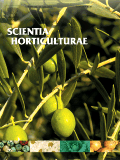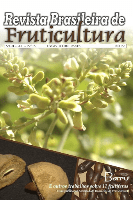
SCIENTIA HORTICULTURAE
metrics 2024
Transforming horticulture through groundbreaking research.
Introduction
SCIENTIA HORTICULTURAE, published by Elsevier, is a leading journal in the field of horticulture, with an impressive impact factor reflected in its Q1 ranking (2023) and position as #6 out of 115 in the Scopus category for Agricultural and Biological Sciences. This journal plays a pivotal role in disseminating cutting-edge research and innovations in horticultural science and technology, contributing significantly to the understanding of plant cultivation, production, and management. With continuous publication since 1973, SCIENTIA HORTICULTURAE offers an essential platform for researchers, professionals, and students alike who are focused on the advancement of sustainable horticultural practices. Although it is not an open-access journal, it provides a wealth of data and findings that can be accessed through institutions and libraries. Located in the Netherlands at RADARWEG 29, 1043 NX AMSTERDAM, this journal remains an invaluable asset to the global horticultural community throughout its converged years, fostering collaboration and elevating standards in horticulture research.
Metrics 2024
 0.83
0.83 3.90
3.90 4.30
4.30 145
145Metrics History
Rank 2024
Scopus
IF (Web Of Science)
JCI (Web Of Science)
Quartile History
Similar Journals

Revista Fitotecnia Mexicana
Empowering Professionals Through Cutting-Edge ResearchRevista Fitotecnia Mexicana is a prominent academic journal published by the SOC MEXICANA FITOGENETICA, dedicated to advancing knowledge in the fields of agronomy, crop science, genetics, horticulture, and plant science. With its establishment dating back to 2007 and currently running through 2024, this journal serves as an important platform for researchers, professionals, and academic institutions interested in plant genetic resources and agricultural innovations. Although it holds a Q4 quartile ranking in various categories and is positioned within the lower percentiles in Scopus rankings, it provides crucial insights and opportunities for emerging ideas and local research initiatives. Based in Mexico, and with its indexed ISSN 0187-7380, the journal plays an important role in stemming from the rich agricultural heritage of the region. The lack of open access options underscores the depth of curated content provided, making it a valuable resource for professionals seeking to expand their expertise in the sector.

Molecular Horticulture
Exploring the Intersection of Science and SustainabilityMolecular Horticulture is a prestigious journal published by SpringerNature, dedicated to advancing knowledge in the fields of Agronomy, Crop Science, Horticulture, and Molecular Biology. Based in the United Kingdom, this journal, with ISSN 2730-9401, is recognized for its high-quality, peer-reviewed research and has rapidly established itself within the academic community, achieving a remarkable Q1 ranking across its relevant categories as of 2023. With a strong focus on innovative research that explores the intersection of molecular biology and horticultural science, Molecular Horticulture provides valuable insights that are essential for researchers and professionals aiming to enhance crop production and sustainability practices. As part of the Scopus database, the journal ranks impressively within its fields, holding notable positions such as Rank #7 in Horticulture and Rank #42 in Agronomy and Crop Science. While currently published through traditional access models, the journal remains accessible to a wide audience of scientists, educators, and students eager to stay informed on the latest discoveries and trends in plant science.

Scientific Papers-Series B-Horticulture
Connecting Research and Practice in Horticultural Sciences.Scientific Papers-Series B-Horticulture is a distinguished open-access journal published by the University of Agronomic Sciences and Veterinary Medicine Bucharest. With its ISSN 2285-5653 and E-ISSN 2286-1580, this journal has been accessible to the global research community since 2002, ensuring that vital horticultural research reaches a wide audience without barriers. Positioned at the forefront of the horticultural sciences, the journal serves as a platform for original research, reviews, and innovations pertaining to horticultural practices, plant physiology, and sustainable agriculture. Its contributions are not just significant in Romania but also resonate through the international scientific community, helping to address pressing agricultural challenges. The office located at 59 Marasti Boulevard, District 1, Bucharest 011464, Romania, symbolizes its commitment to advancing horticultural knowledge and fostering collaboration among researchers, professionals, and students alike. With no current H-index data, the journal invites continued contributions to enhance its visibility and impact in the field.

EUROPEAN JOURNAL OF HORTICULTURAL SCIENCE
Exploring innovative practices in horticultural science.The European Journal of Horticultural Science, an esteemed publication of the International Society for Horticultural Science (ISHS), serves as a pivotal platform for advancing the field of horticulture since its inception in 2003. With its base in Germany, this journal occupies a significant position in the Q3 quartile of horticultural research, confidently ranked #60 out of 115 in the Agricultural and Biological Sciences category on Scopus, reflecting its relevance and impact within the scholarly community. The European Journal of Horticultural Science fosters open access to a wealth of research and insights, facilitating knowledge sharing among researchers, professionals, and students dedicated to the innovative and sustainable practices in horticultural science. As it embarks on a new chapter through its convergence years leading up to 2024, the journal aims to enhance the dialogue on contemporary horticultural challenges and advancements, making it an essential resource for those seeking to contribute to and learn from ongoing developments in this vital field.

Journal of Horticultural Sciences
Advancing Horticultural Research for a Sustainable Future.The Journal of Horticultural Sciences, published by the Society for Promotion of Horticulture (SPH) in India, serves as a vital platform for the dissemination of research in horticulture and related fields. With an ISSN of 0973-354X and an E-ISSN of 2582-4899, this open-access journal has been committed to advancing horticultural knowledge since 2006, allowing researchers to share their findings widely and facilitate significant advancements in the discipline. The journal's influence is reflected in its current category quartile rankings, designated as Q4 in Ecology, Evolution, Behavior and Systematics, Horticulture, and Plant Science for 2023, illustrating its developing reputation within the academic community. It is important to note the journal's Scopus ranking in the field, where it ranks #111 in Horticulture and #709 in Ecology, marking it as a niche publication with potential for growth. As it converges years from 2019 to 2024, this journal aims to further engage scholars, professionals, and students by focusing on innovative research and breakthroughs in horticultural sciences, thus contributing to the global discourse in sustainable agriculture and environmental stewardship.

POTATO RESEARCH
Pioneering breakthroughs in potato science.POTATO RESEARCH is a prestigious journal dedicated to advancing the scientific understanding of potato cultivation and its wider implications in the fields of agronomy, crop science, and food science. Published by Springer in the Netherlands, this journal boasts an impressive impact factor and ranks in the Q2 category for both Agronomy and Crop Science, as well as Food Science in 2023, affirming its significant contribution to these disciplines. With over five decades of research converged from 1970 to 2024, POTATO RESEARCH serves as a vital platform for researchers, professionals, and students interested in the latest findings and innovations that affect potato production and processing. Although it is not an open-access journal, it remains a crucial resource for those dedicated to enhancing agricultural sustainability and food security. For inquiries or submission details, please refer to their office located at Van Godewijckstraat 30, 3311 GZ Dordrecht, Netherlands.

Revista Brasileira de Fruticultura
Advancing the Science of Fruit CultivationRevista Brasileira de Fruticultura, published by the Sociedade Brasileira de Fruticultura, is a leading scholarly journal dedicated to the advancement of research in the fields of agronomy, crop science, food science, horticulture, and plant science. With an impressive Open Access model adopted since 2001, the journal is committed to disseminating high-quality research from Brazil and beyond, promoting innovation and collaboration among researchers, professionals, and students alike. The journal currently holds a respectable Q3 category ranking in multiple fields as of 2023, reflecting its significance within the scientific community, specifically ranked #72 in horticulture and #257 in agronomy, among its peers. The Revista Brasileira de Fruticultura not only serves as a platform for original research articles, reviews, and case studies but also emphasizes practical applications and sustainable practices in fruit cultivation. Its aim is to enhance the visibility of Brazilian fruit research on a global scale, making it an invaluable resource for those invested in advancing horticultural sciences.

Horticulturae
Cultivating Knowledge, Growing Innovation.Horticulturae, an esteemed open-access journal published by MDPI, is at the forefront of horticultural science, showcasing innovative research and advancements in the field since its inception in 2015. With its base in Switzerland, this journal operates under the ethos of global accessibility, allowing researchers, professionals, and students to share and disseminate critical findings without barriers. Horticulturae holds a distinguished Q1 ranking in Horticulture and Q2 in Plant Science, as reported in the 2023 categorizations, highlighting its impactful contributions to the scientific community. The journal features rigorous peer-reviewed articles covering a wide range of topics, including plant physiology, crop production, and sustainable practices, making it a vital resource for anyone engaged in gardening, agronomy, and environmental science. As it converges its focus from 2015 to 2024, Horticulturae not only aims to further academic discourse but also aligns with the growing need for research pertaining to biodiversity and sustainable agriculture, thus ensuring relevance in an ever-evolving field.

BOTANICAL REVIEW
Pioneering insights in Ecology and Plant Science.BOTANICAL REVIEW is a highly esteemed journal published by SPRINGER, renowned for its commitment to advancing the fields of Ecology, Evolution, Behavior and Systematics and Plant Science. Established in 1935, this journal has become a cornerstone for researchers and professionals, reflecting over eight decades of rigorous scholarship. With an impressive impact factor and ranking within the top quartile for both its fields—Q1 in Ecology, Evolution, Behavior and Systematics and Plant Science—BOTANICAL REVIEW remains a key platform for disseminating critical findings and fostering scientific dialogue. Although it is not an open-access journal, its accessibility through institutional subscriptions enhances its reach among the academic community. The journal not only emphasizes the ecological aspects of plant life but also integrates evolutionary context to inform current practices and theories in botany. With a dedication to exploring the complex interactions within botanical sciences, BOTANICAL REVIEW continues to shape the future of plant research.

Pesquisa Agropecuaria Tropical
Pioneering sustainable practices in tropical agriculture.pesquisa Agropecuaria Tropical is a premier Open Access journal dedicated to advancing the knowledge and practices within the field of agronomy and crop science. Since its inception in 1971, this peer-reviewed journal, published by the Universidade Federal de Goiás, has played a pivotal role in disseminating high-quality research from Brazil and beyond. Operating under an Open Access model, it ensures that scholarly articles are freely accessible, thereby fostering greater collaboration and innovation. With a Scopus ranking placing it in the 32nd percentile among its peers in agricultural and biological sciences, and a current classification in the Q3 category of agronomy and crop science, the journal serves as an essential resource for researchers, professionals, and students alike. As it continues its publication journey from 2010 to 2024, it remains committed to contributing valuable insights and advancements in the agricultural sector, ultimately influencing sustainable practices and food security.